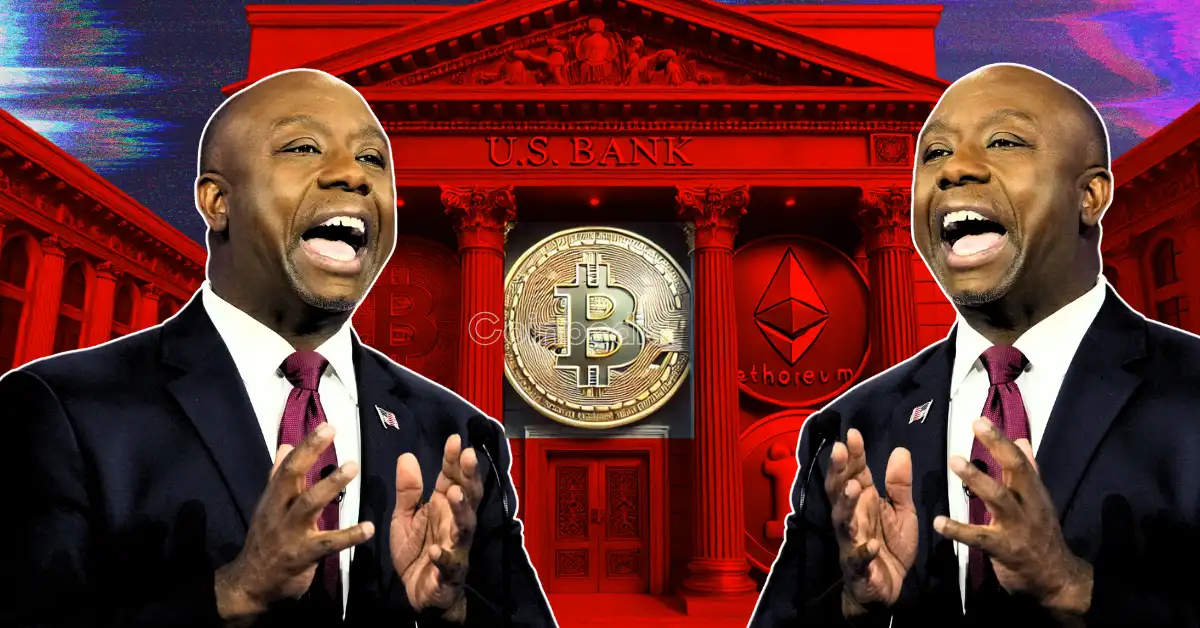
Senator Tim Scott is taking a stand against federal regulators who have been quietly shutting crypto businesses out of the banking system. His new bill aims to stop regulators from using vague “reputational risk” claims as an excuse to block banks from working with certain industries—especially crypto.
For years, financial watchdogs like the Federal Reserve and FDIC have made it difficult for crypto companies to access banking services, citing concerns about a bank’s reputation.
Now, Scott and his Republican colleagues are pushing back, and their fight could have big consequences for the future of crypto in the U.S.
As chairman of the Senate Banking Committee, Scott has introduced the Financial Integrity and Regulation Management Act (FIRM Act) with strong Republican support. The bill would prohibit regulators from considering reputational risk when evaluating whether banks can do business with certain clients, such as crypto firms.
“It’s clear that federal regulators have abused reputational risk by carrying out a political agenda against federally legal businesses. This legislation, which eliminates all references to reputational risk in regulatory supervision, is the first step in ending debanking once and for all,” said Chairman Scott.
Scott is backed by Senator Cynthia Lummis, a key advocate for digital assets and chair of the Senate Banking Subcommittee on Digital Assets. Lummis believes the U.S. needs clear rules that encourage crypto growth instead of restricting it with excessive government control.
“We’re putting these rogue regulators on notice—their days of unchecked power are over,” she added in a statement.
Senator Thom Tillis echoed this stance, saying regulators have used reputational risk as an excuse to cut off businesses they don’t approve of.
“Financial regulators have used ‘reputational risk’ to target people and businesses they don’t like, hiding behind this open-ended and subjective concept,” said Senator Tillis. “The FIRM Act stops this political weaponization and ensures regulators focus on real financial risks, not personal or political agendas.
Crypto has found a strong ally in the GOP, especially with President Trump supporting the industry. Trump has also criticized banks for refusing to work with conservatives, adding fuel to the debanking debate.
Will regulators hold their ground, or is a shift in power on the horizon?
Two cryptocurrencies, Dogecoin and Pepeto, are making headlines in the crypto world. Dogecoin (DOGE) has…
XRP catapulted to $3.84 ATH from its low price—an increase that turned a modest $4,000…
A veteran Wall Street analyst believes that XYZVerse could surpass both ONDO and PI Network…
CoinDCX, one of India’s largest crypto exchanges, has reportedly lost around $44.2 million in a…
XRP is back in the spotlight as excitement grows around its future. With talks of…
Two Cryptocurrencies -- Ripple’s XRP and Pepeto (Pepeto) -- are making headlines in the crypto…